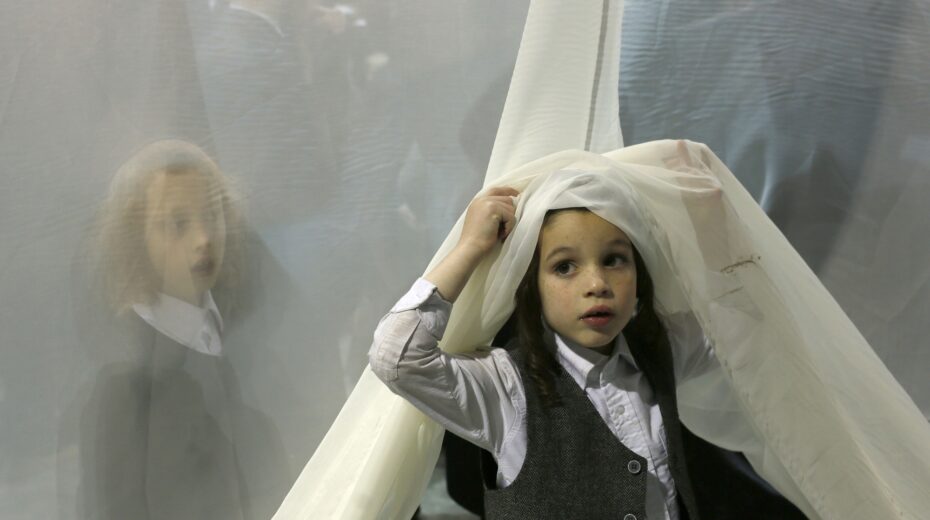How a young Jewish believer in Jesus found her unique, and uneasy place in the Jewish state.
Marina came to our Messianic Jewish Home Group crying. Her Ulpan (Hebrew language) teacher had insisted, “You are not Jewish!,” after Marina had shared with the class that she believed Yeshua (Jesus) is the Messiah of Israel. This 17-year-old cried because her whole life she had waited to come to Israel. Back in Russia, her family had lived as Jews, and some had died because they were Jews.
Many of Marina’s family had already come home to Israel. They came because they were persecuted for being Jewish, and wanted to live as Jews, among Jews, in their own homeland. They raised their children with an appreciation of their Jewish heritage and instilled in them a desire to return to the Land of their Fathers.
Yet now that she was here, Marina was unprepared to be called a “Goy” (Gentile stranger) by those she loved and so longed to be with. Here she was, the best student in her Hebrew class, learning the songs and traditions and gaining an even deeper appreciation for her Jewish heritage, while working every night from 9pm until 2am cleaning empty offices after studies to help provide for her immigrant family’s needs. Now she is told by her religious Jewish teacher that she is not Jewish and doesn’t belong here.
What could Marina say? Even her Israeli ID card, issued by the Orthodox-led Ministry of Interior, says that she is Russian, and not Jewish, because she was born to a Jewish father, but not a Jewish mother. How can she prove to her people that she does belong? Should she even bother? As followers of the Messiah Yeshua, does living as Jews among our people in Israel really matter so much?
Yes, it does, in many ways. How will Jewish people come to appreciate Yeshua and his teachings unless there is a vibrant Messianic faith community living a Jewish lifestyle? Certainly, the Jewish people, perhaps more than others, deserve an opportunity to consider Yeshua, his life and teachings, as a fulfillment of the Hebrew Scriptures and Jewish life, not its abrogation or betrayal (sadly, there are troubling signs that many in the Messianic movement in Israel are moving away from their Jewish heritage).
What can we do, and who is a Jew anyway?
According to Orthodox Rabbinical Halachot (Jewish law), the offspring of a Gentile mother and a Jewish father are Gentiles, while the offspring of a Jewish mother and a Gentile father are Jewish. This ruling is based on the understanding that it is not lawful for a Jew to marry a Gentile. Such a marriage is considered invalid by Orthodox Judaism, so the Jewish father who marries a Gentile woman has no rights over his children. The children of a Jewish mother are Jewish simply because she is Jewish, though they are considered illegitimate.
Consider this. Israel’s Chief Rabbinate refused to recognize the conversion to Judaism of David Ben-Gurion’s daughter-in-law because it was performed by a Reform Rabbi. When her child was born on the Sabbath and was thus scheduled for circumcision on the following Sabbath, according to Halacha, the Rabbinate refused to perform the ceremony. They refused to recognize the child as Jewish. So, we have a situation in which the grandchild of Nikita Kruschev (former Premier of Communist Russia) is considered Jewish because his son married a Jewish girl, but Ben-Gurion’s grandchild is not.
Uniquely positioned
Like Marina, Messianic Jews in Israel are uniquely positioned to challenge this unjust and illogical definition of Jewish identity by resisting assimilation and reaffirming their Jewish identity and lifestyle as part and parcel of their faith in the Messiah Yeshua.
Living as Jews who believe in Yeshua must not be merely a way of avoiding the social stigma of “Goy” (Gentile stranger) by our people. This will eventually lead to the denial of our Messianic, New Testament faith, for which we already find ourselves “outside the camp.” Only when we choose to live as Jews in obedience to God’s Word–and for this we are willing to suffer as Jews in a Gentile world, or as Messianics in a Jewish world–may we then live honorably as Jews who believe in Yeshua in Israel.
Imagine how that seasoned, Orthodox Jewish Ulpan teacher must have felt after learning that her student, the one who knew more about Israel than others; this dark skinned young girl with a deep love for the people and Land; the one who already spoke Hebrew as though it were her mother tongue; her favorite student; believes in Yeshua HaMashiach (the Messiah). All her life she had lived with the understanding that Yeshua and his “Christian” followers were the enemies of Jews and Judaism through the ages. Her eyes, or heart, may not have been opened, but she was surely challenged to look again at the Messianic claims of Yeshua.
It appears that now, after a far too long journey of two millennium, that the veil is beginning to crack open so that the Jewish people may begin to reconsider, and perhaps even reclaim, their Messiah, the Son of David.

